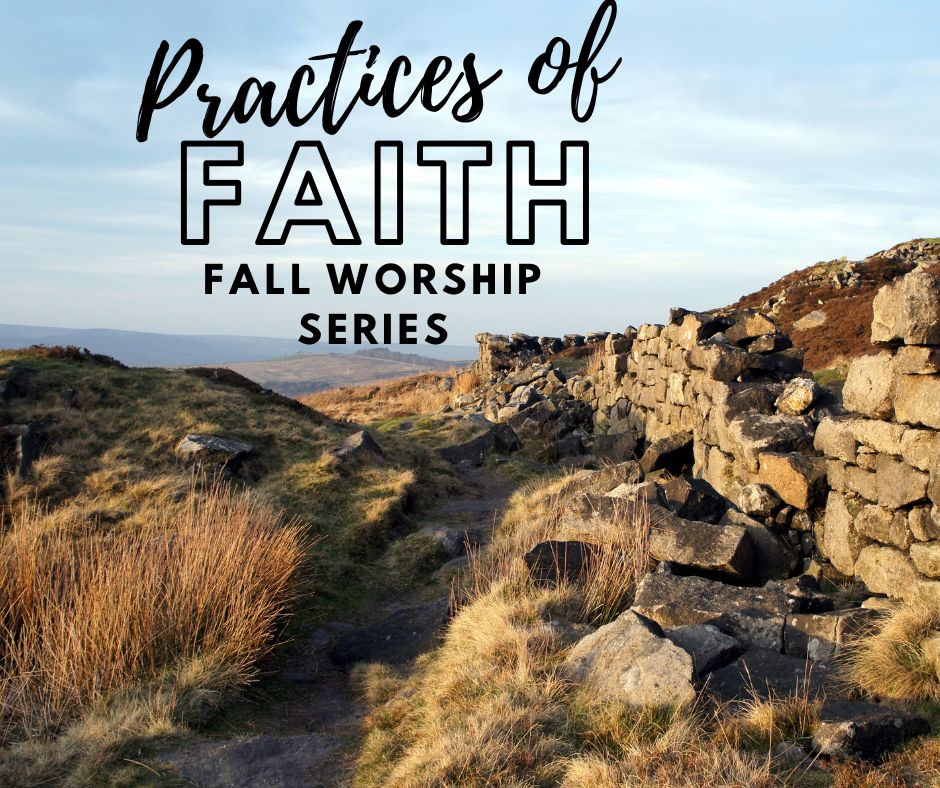 Fall Worship Series: Practices of Faith
Fall Worship Series: Practices of Faith
In August, I spent one week with my family at the Chautauqua Institute in New York. We stayed at the Presbyterian House that sits just outside of the amphitheater, so all day we could hear the sounds of morning worship, of the orchestra or choir practicing, of the ballet dancers laughing after something in rehearsal did not go as planned, and the evening sounds of Canadian Brass filling the air with metallic bellows. Down the hill, boats sat balancing on gentle waves in the lake, the bell tower tolled every fifteen minutes all day long, and kids and parents whizzed along the lakeshore on their bikes. Being there felt like being in another world, even though our home was only 40 minutes away. Time was slower, the air crisper, the sun brighter, and life seemed more present than ever before. Each morning, in the chapel at the house, at 7:45 AM, there was a meditation teacher and a time of meditation. I began going on the second morning out of curiosity. I have practiced meditation before, but I was never consistent with it. What if this week looked different? With no emails, no texts, no appointments, or crises on the horizon, what if I began each morning like this? The first morning I went, the meditation teacher said, "Meditation is like a guitarist tuning his guitar. He doesn't play, then tunes his guitar. He tunes, then plays. Meditation helps you tune, so that you can play." So, each day I tuned with 40 others in the chapel for 15 minutes. Each day, those minutes went by quicker and quicker, so that I swore he was shortening the class. He wasn't. I have come to enjoy my contemplative prayer, tuning my thoughts and waiting to hear God.
Brian McLaren, a former evangelical pastor, author, speaker, and public theologian who is on the faculty at the Center for Action and Contemplation, speaks of spiritual or faith practices as "actions within our power that help us narrow the gap" between the people we are and the people we are becoming. Sometimes our faith can feel like a series of "to-dos." We often treat our faith like our jobs, a checklist of things we have to do rather than a way of being in and with the world. This Fall, as we all return to our routines of early mornings, school buses, boards and clubs we serve on and take part in, football games, and the turning of the leaves, we will learn together about ancient practices of our faith that help us tune our hearts, minds, and souls, so that we are not merely existing in the world but awaken to our God, God's people, and God's creation. We will explore together each week the practice of prayer, generosity, gratitude, worship, sabbath, self-examination, study, and many more. What do our sacred scriptures say about these practices? How did our spiritual fathers and mothers use these practices throughout history? What do they mean for us today? Which one may be a practice you pick up? Join us Sundays, beginning September 7, as we explore, learn, and grow together.
Written by Rev. Britney L. V. Knight






